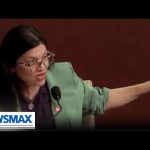Glenn Beck has again sounded the alarm about George Soros, recounting an episode he says dates back to 2009 when, according to Beck, an associate of Soros warned Beck’s team to “fall in line or get out of the way.” Beck has used that story to frame Soros not just as a political donor but as a strategic architect working to reshape civic life and institutions. Whether one accepts every dramatic turn of Beck’s retelling, the claim itself is serious and worth scrutiny given the stakes.
This latest retelling comes on the heels of a decade-long crusade by Beck against Soros, including the multi-part “Puppet Master” narratives that painted Soros as a global manipulator of money and politics. Those programs took snippets of lectures and philanthropic activities and stitched them into a larger story about elite influence and intentional societal reengineering. Conservatives who have watched Beck over the years see a consistent pattern: persistent exposure of how money flows into movements and institutions, not the occasional conspiracy theory.
Beck’s specific allegation — that Soros’ “number two man” conveyed a threat to his “number two man,” prompting advisers to urge Beck to make himself Soros’ visible enemy — is the kind of personal detail that pushes this from abstract critique into a direct confrontation. Beck has repeatedly said he made that choice intentionally so any harm that befell him would be unmistakably traced to an identifiable adversary. The story has been retold by conservative outlets and dissected by critics who question the evidence, but the fact Beck reports such intimidation attempts cannot be waved away lightly.
There is a larger, legitimate conservative concern behind Beck’s rhetoric: concentrated wealth used to influence political outcomes. Soros’ Open Society network and similar philanthropic structures undeniably move billions into advocacy, academic institutions, and media efforts worldwide, and skeptics ought to demand transparency about aims and methods. Vigilance about the mixing of private capital and public policy is not paranoia; it is the civic duty of an informed citizenry to expose how influence is wielded.
Part of the controversy stems from Soros’ own 2009 lecture series at the Central European University, where he warned that unregulated capitalism and certain political dynamics pose threats to an “open society.” Beck and others have interpreted those warnings as evidence of a blueprint for engineered disruption. The original lectures are publicly archived and show Soros grappling with complex questions about markets, regulation, and social stability — topics that can be framed as prescriptive depending on one’s political lens.
Mainstream critics have accused Beck’s portrayal of Soros of veering into conspiratorial territory and even of invoking anti-Semitic tropes by casting a Jewish billionaire as the secret puppet master of global events. Those charges are serious and have been made repeatedly by outlets that track media narratives and rhetoric. Conservatives should acknowledge that careless language and caricature weaken a valid critique; the argument against concentrated influence stands strongest when it sticks to verifiable facts rather than innuendo.
At the same time, the reflex to dismiss every critique of elite donors as bigotry or delusion serves the powerful by removing oversight. There is a difference between pointing to real-world transactions, institutional hires, and grant patterns and indulging in shadowy fantasies; the former is accountability, the latter is smearing. Those who care about free speech and pluralism should demand rigorous evidence and resist the urge to weaponize labels to silence inconvenient inquiries.
Why this matters now is plain: if a media figure like Beck can credibly claim intimidation from a networked donor, and if powerful philanthropy can fund movements that change civic norms, then Americans must debate the rules of influence openly. Beck has repeatedly pointed to street-level upheavals in Europe — including unrest in France — as the kinds of social convulsions he says Soros warned about, arguing that what happens overseas often washes ashore here. Whether one agrees with his conclusions or not, the underlying questions about influence, accountability, and the health of our institutions deserve a national conversation, not reflexive censorship.




